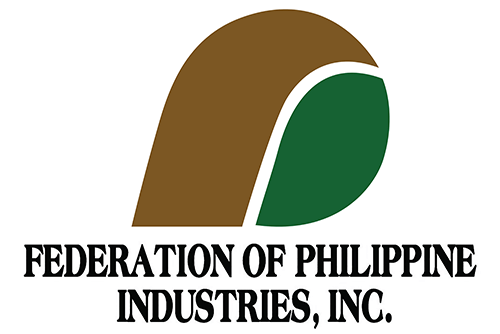How Can We Help?
If you need any help, please feel free to contact us.
8722-3409 / 8722-9737
fpi@fpi.ph
Anti-Smuggling
The Federation of Philippine Industries (FPI) is a strong advocate against illicit trade and smuggling, recognizing the significant damage these activities inflict on the Philippine economy and society. Here’s a breakdown of FPI’s key advocacy points:
Key Concerns and Impacts:
Economic Losses:
- The FPI highlights the massive revenue losses suffered by the government due to unpaid duties and taxes. This includes substantial losses in value-added tax (VAT). “Based on the Multi-Industry Illicit Trade research study conducted by the University of Asia and the Pacific covering eight (8) industries with so-called frequently smuggled products: 1. Petroleum 2. Steel 3. Resins 4. Wood 5. Cigarettes 6. Sugar 7. Palm Oil 8. Automotive batteries, the government has lost PhP904.6 Billion in duties and taxes from 2011 to 2015.”
- Smuggling undermines legitimate businesses, leading to production losses, reduced employment, and a decreased contribution to the country’s GDP.
Harm to Local Industries:
- Illicit trade floods the market with cheap, often substandard goods, creating unfair competition for local manufacturers. This can lead to factory closures and job losses.
- Specific sectors, such as the tobacco and agricultural industries, are particularly vulnerable.
Consumer Safety:
- Smuggled goods often bypass quality control and safety standards, posing risks to consumer health and safety.
Erosion of Public Trust:
- Illicit trade undermines the rule of law and erodes public trust in government institutions.
Advocacy Actions:
Calling for Stricter Penalties:
The FPI advocates for harsher penalties for smugglers, including classifying certain smuggling activities as economic sabotage and making them non-bailable offenses.
https://customs.gov.ph/wp-content/uploads/2025/03/2025CMC-70-2025.pdf
https://customs.gov.ph/wp-content/uploads/2023/01/CMO-1-2011.pdf
Enhanced Enforcement:
FPI urges government agencies to intensify their efforts to combat smuggling through stricter enforcement of existing laws, increased maritime patrolling, and improved customs systems.
Inter-Agency Collaboration:
The FPI emphasizes the need for closer collaboration between government agencies, industry stakeholders, and law enforcement to effectively address illicit trade.
FPI wants stricter rules on product standards.
https://www.philstar.com/business/2020/10/26/2052224/fpi-wants-stricter-rules-product-standards
FPI collaborated with the Bureau of Customs by entering into a Memorandum of Agreement with the latter
https://jur.ph/law/rules-regulations-boc-fpi-moa-2010#_
In view of the Memorandum of Agreement, the FPI-Industry Technical Experts recommended an estimated additional duties and taxes in favor of the government amounting to PhP968,441,591.14 from year 2015 to 2023.
Policy Recommendations:
FPI provides policy recommendations to the government, such as mandating the destruction of confiscated smuggled goods and allocating additional funds for anti-smuggling efforts.
https://www.gppb.gov.ph/wp-content/uploads/2023/06/Administrative-Order-No.-227.pdf
https://web.senate.gov.ph/press_release/2009/0311_zubiri1.asp
Public Awareness:
FPI works to increase public awareness of the detrimental effects of illicit trade.
Supporting Legislation:
FPI actively supports legislature that increases the penalties for smuggling.
Achievements:
FPI lobbied before the Department of Finance (DOF) for the Accreditation of Importers in order to weed fictitious importers.
- On November 19, 2003, DOF Secretary Jose Isidro Camacho issued a directive to the Bureau of Customs to issue a Customs Memorandum Order setting out the procedure in the accreditation of importers, including consultation with the private sector.
FPI pushed for the activation of the Post Entry Audit Group (PEAG) of the Bureau of Customs.
- PEAG was activated and investigated the discovery of FPI regarding the shipment of an unscrupulous importer of Gajah Tungal Tires declaring at a measly US$5.00 for each tire.
FPI dialogue with the Bureau of Customs (BOC) to consult the local manufacturer in the crafting of formulae of manufacturer.
- After the April 30, 2003 dialogue, BOC Commissioner Bernardo welcomed the recommendation of the industry association on the formulae of manufacture used by Customs Bonded Warehouse (CBW) operators prior to the importation of their required raw materials. The correct formulae will help minimize the possibility that these can be exploited to hide technical smuggling such as the provision of 30% wastage in the case of tin can manufacturing. Indeed, if there is a 30% wastage, that business should already close.
FPI urgently lobbied for government to address the rampant smuggling
- On March 10, 2004, the National Anti-Smuggling Task Force (NASTF), an inter-agency task force to orchestrate a consolidated anti-smuggling campaign was created.
- After, NASTF was closed on August 25, 2004, and upon the strong pushed by FPI for its reactivation, on November 16, 2004, President Arroyo heeding the Senators’ call and issued EO 385 reactivating NASTF now known as Task Force on Anti-Smuggling (TFAS). Apart from an investigation and intelligence Division, it created several sub-committees to draw up recommendations for reform in several areas: 1) Customs Bonded Warehouse; 2) Special Economic Zones/Freeport; 3) Customs Valuation; 4) Purging of Importers, Brokers, Bonding Companies; 5) Agricultural and Food Products; 6)Petrochemical and Drugs, etc.
CORA an FPI member questioned constitutionality of EO 97-A
- The Supreme Court (SC) decided in favor of local manufacturers and declared EO 97-A unconstitutional. The Court resolved that no imported goods regardless of quantity can be brought out of Subic, Clark and other economic zones without paying the proper taxes and duties. In effect, it declared illegal the practice of allowing 15 years old and above to buy US$100 and US$200 2orth of goods and bring them outside the economic zones tax and duty free. This decision leveled the playing field between the local manufacturers and importers located in Special Economic Zones
FPI initiated the President’s issuance of AO 227 giving preference to local manufactured products
- Through the initiative of FPI PGMA issued Administrative Order No. 227 entitled “Directing All Heads of the Departments, Bureaus, Offices and Agencies of the National Government Including Local Government Units (LGU’s); Government-Owned And/or Controlled Corporations (GOCCS), Government Financial Institutions (GFIs), State Universities And Colleges And Military And Police Units To Give Preference In The Procurement Of Materials And Supplies, Produced, Made And Manufactured In The Philippines. FPI candidly believed that if the government’s various department and agencies will take the lead in patronizing locally produced and manufactured products, this will tremendously helped the continued development of the local industries, preserve employment and increase the government revenues in terms of payment of taxes. This is particularly considering that the Philippines is not yet a signatory in the WTO relative to government procurement.
FPI being the organization of local manufacturers and producers fielded its own Industry Technical Expert (ITE) in the Bureau of Customs to monitor alerted imported products.
- From _____ to _____ the FPI-ITEs recommended to the Bureau of Customs a total PhP______________ as additional revenue in favor of the government.
FPI actively monitored technical smuggling of imported products.
DOF appointed FPI as a private sector representative in the Committee for Accreditation of Cargo Surveying Companies (CACSC) that screens and accredits cargo surveying companies under the Department of Finance.
FPI actively participated in the House of Representatives’ Technical Working Group (TWG) in the crafting of the Customs Modernization and Tariff Act (CMTA).
- Republic Act No. 10863, otherwise known as the Customs Modernization and Tariff Act (CMTA) was signed into law on May 30, 2016.
FPI commissioned the Center for Research and Communication, University of Asia and the Pacific to conduct a multi-industry illicit trade barometer research study covering: 1. Cigarette; 2. Petroleum; 3. Coconut/Pal Oil; 4. Sugar; 5. Resin; 6. Battery; 7. Steel Bars; and 8. Plywood, to analyze the Philippine imports from 2011-2015 by quantity, value and price.
- On August 2017, this study on the prevalence and impact of Illicit Trade in the country showed that as much as PhP900 Billion worth of goods were smuggled into the Philippines, thereby validating the earlier independent findings of FPI of the serious tax leakages.
FPI formally wrote the Department of Finance (DOF) about the possible tax leakage of the massive importations using the De Minimis and whether government data is capturing it.
- The government is now closely monitoring and taxing products particularly those sold online.
FPI thru Chairman Jesus Lim Arranza exposed the multi-million Palm Oil smuggling supposedly imported to be used as animal feeds, thus exempt from paying VAT, when in fact this are fit for human consumption.
- This is now being investigated by the Bureau of Internal Revenue and National Bureau of Investigation. This anomalous scheme by unscrupulous importers has abruptly stopped after the exposê.
In essence, the FPI’s advocacy is driven by a commitment to protecting Philippine industries, safeguarding government revenues, and ensuring consumer safety.



